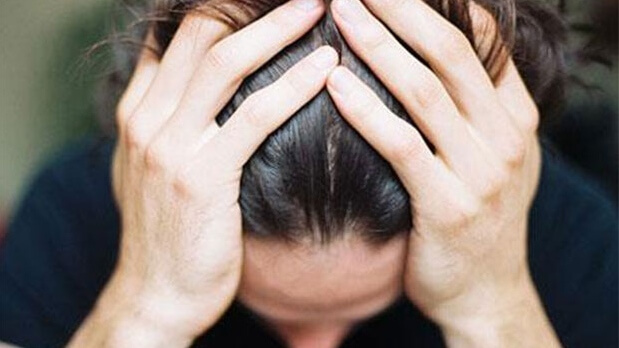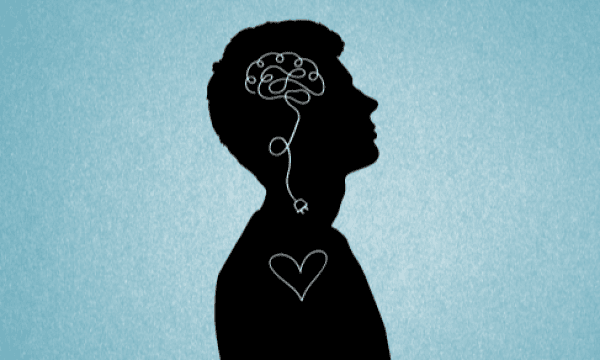
At the age of 16, I was diagnosed with bipolar disorder. Prior to the diagnosis, I hadn't slept in two days, my mind was racing and I couldn't stop talking. I was irritable and defensive. I was crying, barely eating and over exercising.
I didn't know what was happening to me. All I knew was that something was wrong and I didn't feel like myself. It got to the point where I was unable to function and my family, friends and teachers noticed to the point that I was hospitalized.
We've heard several stories of the stigma of mental health issues in the South Asian community. I write this anonymously as the stigma still exists and I am unable to "out" myself due to this mental illness that is highly misunderstood.
Movies such as Moonu (3) exemplify how bipolar disorder is misunderstood in our community. These movies have misinformed ideas about bipolar disorder and present it as something extreme and violent. In fact, in this film it is more likely that Dhanush has a psychotic disorder such as schizophrenia.
Both Tamil movies and Hollywood dramatize bipolar disorder because it has better entertainment value. The severity of bipolar disorder runs on a continuum, but only the most extreme versions are portrayed in the media and glorified in Hollywood. This is detrimental as people are only being exposed to one inaccurate and exaggerated representation of bipolar disorder.
Getting diagnosed was a relief of sorts. I could finally put a name to what was going on. However, it also came with several repercussions and medications I had to take involuntarily since I was a minor.
When I was hospitalized, I thought I would be the only person of colour on my floor. To my surprise, most of the people on my floor were also people of colour. For some odd reason, I was comforted by the fact that there was another Tamil person there. My comfort came from knowing that I wasn't the only Tamil person I knew with a mental health issue.
Initially, my parents had a hard time digesting what was going on. They wanted to find the cause of my bipolar disorder. They also went through blaming themselves for it. My family and I have learned that there was no specific event or situation that triggered my mental health. There was no cause and there definitely wasn't something or someone to blame.
Unfortunately, both my parents and I were not ready to digest that my bipolar episode wasn't a one-time thing. I remember the doctor telling me that I was going to relapse and it would be something I would have to live with forever.
Over the years, my parents and family have been the greatest support for me. They have tried their best to deal with my unexplainable (and inexcusable) behaviour. My siblings have always helped me learn how to cope. My friends have stuck by me and been there for me through my worst. It is so important to have a strong support system given how mental health is still taboo in our society.

There is no easy fix to any mental illness. Instead, you learn that long-term life style changes need to be made. This includes but is not limited to therapy and medication. For me, it was important to learn the various symptoms and behaviours I experience right before a manic episode such as taking on too much work and consequently not sleeping because of it.
A few things I want to clear up is that bipolar disorder is different for everyone. For me, the mania or the "high" isn't a good high. It's awful. I can't sleep. I can't shut off my brain. I’m rude. I blow money without thinking. The worst part is I say hurtful things to people and when the episode is over, I forget almost everything I said and did until I am confronted or reminded.
If I were being completely honest and had a choice between mania and depression, I'd pick depression in a heartbeat. When I'm depressed I don't hurt the people I love. I would much rather cry for hours for no apparent reason than hurt the people who love me.
I know it can be challenging and triggering when our parents don't understand our mental health issues. I've learned that this simply could be because back home, mental health isn't something that is talked about or dealt with. It's hard for our parents to understand something that is never discussed in the societies they grew up in.
I know some people have tried their hardest to explain to their parents what they're going through. Many parents will often invalidate and ignore your mental health, or tell you to "control your mind" or to “not talk about 'these things'". I am extremely grateful that this did not happen to me, but I am truly bothered and hurt when others experience this.
Finally, I would like to politely ask that you do not use mental health as adjectives to describe something. Saying things like "that person is bipolar" when someone is expressing different moods or "this weather is bipolar" to describe unpredictable weather is offensive and disrespectful to people who actually have bipolar disorder.
I wrote this to clear up some misconceptions about the disorder. I also wrote this for people to learn about what it's like for someone from a Tamil family living with bipolar disorder. You are not alone.
Please refer to CAMH for info regarding mental illness and support available: www.camh.ca
Related articles: Taking Matters into My Own Hands: How I Sought Help to Manage My ADHD Let’s Talk About Mental Health My Girlfriend Tried to Kill Herself My Best Friend Helped Me Battle Depression When My Mother Wouldn’t

























